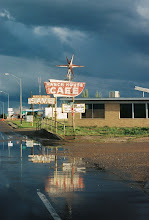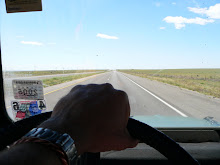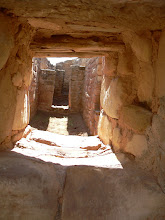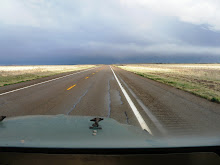It's Southern Decadence week in New Orleans and I'm standing on the wrong end of Bourbon Street surrounded by literally hundreds of sweaty, horny, and very drunk gay men. Here, there’s a six foot six cowboy who’s built like Arnold Schwarzenegger in his prime and wearing only a straw cowboy hat, pointy toed cowboy boots and a black leather jockstrap. There, a matched brace of youths that might weigh in at buck thirty five a piece in matching sailor hats and white briefs. They’re singing "Anchors Aweigh" and seem very patriotic, albeit in a rather unconventional way.
It’s swelteringly, tropically hot and love is in the air, in the street, in the bars, the alleys. Am I uneasy? No. Am I straight? Yes. Am I offended when some men hit on me and some don't? Not exactly, though I do wonder why. Primarily I’m impressed with the sheer force of abandon with which these boys are partying and at the same time amazed at how well groomed the majority of them are. During beach season one year I tried to thin the hair on my chest with an electric beard trimmer, but the results were not as I see before me tonight. When I finished I didn’t look any the better, in fact I looked as if I had mange.
In any case, though dwelling on the past is as inevitable as it is futile, one needn’t dwell on the worst of it. I turn to why I even have the capacity to stand here and take all this in and it’s this: Georges Bizet and The Dallas Opera.
A lifetime ago, after college but before grad school, with no idea of what to do or who to be, I impulsively auditioned to be a supernumerary, a non-singing extra in the Dallas Opera's production of Carmen. The interview consisted of sitting down with the diminutive stage director who expressed relief when—after inquiring if I had any acting experience—I answered “No.” I told him I considered myself completely free of any opinions on acting, productions, plays, and anything else theater related.
“I couldn’t stage a coup in South America,” I quipped.
As he looked me over for a long moment I expected to be shown the door. The he broke the silence. "That's good," he said. "You have no idea how trying these bitches with a little experience can be."
It seemed sensible to agree, so I did and that sealed it. In short order he gave me the run down: rehearsals were every night for two weeks, afterwards there would be four performances: Friday night, Sunday matinee, Wednesday night and Saturday night. He paused before delivering what many in my position must have received as highly offensive information.
“The pay is five dollars per night.”
He may have taken my silence as the preliminary stages of shock. “Per night,” he reiterated. “Not per hour.”
I shrugged my shoulders and said “Sounds great.”
He pursed his lips and continued. Though vital to large productions, supernumeraries play only a small part and are always expected to do exactly what is asked, nothing extemporaneous, nothing additional and “No acting!” We were scenery. Even so, we were expected to be polite scenery and call ourselves and each other "supernumeraries"—or “supers”—as opposed to the trade slang “spear carriers” as that was considered a derogatory term. Upon entering the room I had noticed
a fifty-five gallon drum in the corner with at least a score of spears of differing lengths jutting out at various angles. He must have caught my glance toward it. “Of course, sometimes supers do carry spears,” he said reflectively. “But not in Carmen.” Which was true; I was to be given a sword.
All of this was fine with me because I didn't have any aspirations, per se. I was there because I didn't know where else to be and also because I was driving a truck for Dallas Concrete, picking up and delivering heavy machinery to job sites. It was hot, miserable work performed primarily in the 80 mile an hour parking lot that is Dallas traffic and was by turns mind numbing and then terrifying. I felt cut off and lonely for some conversation other than “Do you think it's the fuel line?”
As with many thoughtless decisions, this one proved to be life changing in permanent, unexpected and—in this particular case—good ways. I didn't discover a nascent love for either theatre or men. I did, however, discover much more; more about myself, about others, about art in general and opera in particular. I had always liked opera, but attending one every three to four years was and remains plenty. I recently bought a DVD of the Zurich Opera's 2006 performance of "Doktor Faust" that I think is first rate, partially because I watched it over a leisurely span of three nights in my living room, as opposed to straight through in a rented tuxedo. Getting to step behind the curtain and be a part of the opera was edifying too, not only in terms of the art form, but in terms of myself as well. I realized for the first time that for all my education and though I was well read by almost anyone's standards, I was still a provincial, homophobic boor.
Never in my life had I been around anyone who was openly gay. People that I or my friends identified as a “fags” or a “homos” were usually singled out based on our stereotypical assessments of how masculine we felt they weren’t, how they dressed, how they talked. In short, anything and nothing. We all knew that homosexuals were sissies and inferior in every way imaginable, as well as the fact that we were unspeakably attractive to every gay man in the world. This second misconception created a complex of anxieties that, for me at least, I was unable to even acknowledge, let alone address.
All of these notions evaporated the first night of rehearsals. The supers who milled around in the rehearsal hall ranged from dainty wisps of things to burly, strapping men who looked capable of fighting mountain lions bare fisted. Some stood demurely off to the side and watched while others strode through the hall like returning conquerers sizing up their spoils. These were the extremes of course; the majority were just as unremarkable as the people one finds anywhere. Some gave me the long once over, while others regarded me coolly for a moment or two in obvious disinterest before passing on. As for me, I stood just inside the doorway and was suddenly relieved to spot a friend of my sister’s standing there in the hall with her two kids who, as luck would have it, were going to be supers as well.
Rehearsals lasted about three hours a night, and though we didn't have lines to learn, we did have to know the opera, where to be onstage, what not to do and what to do. I had two parts, one as a villager, one as a picador. In an actual corrida the picador—mounted on a little fireball of a Spanish pony—attacks the bull early on, spearing him a few times so that through a combination of exertion and blood loss he weakens, making it easier for the matador to prance and preen and finally stab him with his sword and in so doing end the assault.
As a villager I was one of the throng in attendance when Carmen first appears in Act I, and tosses a flower to Don Jose who will become her lover and later stab her to death. In that preliminary scene I was to stand next another super named Justin who was about my age, dark, brooding and quietly enchanted with one of the tenors in the chorus who looked disturbingly like Dom Deluise. Justin was a nice looking guy and even though he gazed upon the object of his desire with barely suppressed adoration, I just couldn't picture them together.
He and I stood together well to the back of the crowd and when Carmen appeared we would make big faces and pretend to jabber about her in excitement and awe. My understanding is that it’s commonplace for directors to instruct the extras in large crowd scenes to mutter “Asparagus, asparagus, asparagus…” because the polysyllabic word creates a pleasant, low level hum and it's obvious to the audience that the actors are talking. Think about that the next time you watch a zombie movie and the mindless horde is closing in on some poor unfortunate.
Regardless, no one told me or Justin that and we had fallen into the habit of speaking lines of our own creation which were something like:
Justin: “Oh! It is Carmen! Look how lovely she is!”
Me: “Yes! It is Carmen! She is beautiful!”
We repeated this to each other so often that we were like twins it seemed; capable of completing each other's sentences. Between scenes we spent a fair amount of time hanging out and talking. He knew some of the other guys, all of whom were gay and who joined him in ribbing me and my failed attempts to seduce one of the dancers, a willowy ballerina with sandy blond hair and hazel eyes who was just dynamite in her peasant gypsy costume. I had long, involved fantasies in which she, I and a rustic cottage in some dark forest played significant parts. For this and many other reasons I was beginning to enjoy myself immensely. It was great fun being with people who under other, earlier circumstances I would likely have crossed the street to avoid. Justin was funny and cool and we had an easy camaraderie that hovered near friendship. This was a trust that I was to betray during the Saturday evening performance.
Friday, the first night, was sparsely attended, yet still generated a great deal of the free floating tension, anxiety and anticipation that being in the spotlight usually engenders. In addition to being prepared by seemingly endless rehearsals and a perfectionist of a director, Justin had also brought some pot, which we slipped out and smoked before it was time to go on. I was always drawn more to Jack Daniels than weed, because drinking whiskey and careering into the night suits my temperament. Pot always made me stupid, hungry and sleepy in that order. As I don't like being stupid, am not particularly fond of eating and have nightmares, it was never much of a temptation. Regardless, I was doing a lot of things just a little bit different, so I figured why not?
When it was my turn to parade across the stage in my lime green picador costume, brandishing the faux weapon and looking like a bantam rooster trussed in crushed velvet, I didn't toddle off into the orchestra pit and that, as they say, ought to count for something. I quickly grew to relish that part of the performance as I was, briefly, the center of attention. It was heady and exciting to know that for that small instant, all eyes in the house were fixed on me. Even during the days, driving my truck and dropping off equipment, I often surprised myself by how intensely I looked forward to the next performance and my fifteen moments of fame.
By contrast, Carmen's entrance, when Justin and I pretended to babble excitedly was altogether bland and ordinary. And therein lay the problem.
As I mentioned earlier, operas are long affairs and for me, a little goes a long way. This was even more true of rehearsals. After make-up and dressing, we spent the bulk of our time waiting backstage, talking and watching the clock. One of the other supers had taken an unwholesome interest in me and though many of the others warned him off, telling him I was straight and so forth, he was persistent, which was fine, but he was aggravating as well. I’d seen—at times I’d been—his type, sullen in his frustration and snide when he finally got the point.
Each evening when the rehearsal or performance ended there’d be a mad rush to strip off the make-up, return our costumes to Wardrobe and leave. I would usually drive my FJ-40 Landcruiser the half mile from the Music Hall at Fair Park down to Adair's Saloon for a cheeseburger and a couple--or six--beers. In the contrast of Bizet and an Earnest Tubb chaser I found a smooth combination.
Sitting there watching the urban poseurs as they drifted through in their cowboy hats and boots, drinking, laughing, it occurred to me that if they knew where I’d been and what I’d been doing there might be trouble, even though I knew many of them in that counterfeit way that passes for friendship amongst bar regulars. I didn’t think there’d be a fight. It may look like it, but Adair’s isn’t a particularly rough bar. All the same, it’s easy to retreat to fixed positions and one or another of them might have chosen to call me something, maybe even “fag” or “homo.” Who knows? Given the storehouse of pejoratives open to even the most ignorant of us, it could have been any of hundreds. To highjack Tom McGuane’s assessment of the Irish, cowboys typically don’t have a sense of humor; they have a sense of ridicule.
By the Saturday evening show it had become old hat. The opera had been great fun, but as with all things that repeat themselves with little or no progression, the dew had been knocked off the lily and I was ready to move on. I know from experience that idle hands may be the devil’s workshop, but an idle mind is a whole industrial complex.
It was time to go on and as Justin and I stood next to the fake balustrade Carmen hove into view and turning with expectant eyes to me he said, exactly as I knew he would “Oh! It is Carmen! Look how lovely she is!” And I, because it's my nature to ruin good things, made a claim about her that was so incredibly obscene that his shocked reaction was noted by several of those on stage with us, as well as many in the audience, including my parents.
Justin regarded me with a puzzled look that conveyed annoyance, amusement and something else that at the time didn't register, but that I have come to view as disappointment.
Backstage he turned to me and said “You could have warned me beforehand.”
I had been laughing but stopped. I told him I didn't know I was going to do it myself, that it was just a bit of extemporaneous acting, but he was clearly upset and we left it at that.
The opera ran its course and ended; the group of professional and non-professional performers went their separate ways, never to be together again, but that's as it should be. Given the talent and the desire, a career in opera seems like it would be exciting and fulfilling. Forever trading one’s time to be a spear carrier? No. Some things are enchanting and fun in large measure due simply to their transience. I didn't make any lasting connections, though the ways in which the friendly acquaintances changed my outlook were many. Some were immediately evident; others took years to appreciate.
After the last performance most of us didn't leave right away as had previously been our habit, hoping to find a quick supper, a friendly bar or to beat traffic as we headed back to our separate lives. On this night few wanted to leave and we stood around in costume, small clumps here, a hushed conversation there. I looked for my ballerina, but she was gone. As I was turning to go, Justin detached himself from a group and ambled over, extending his hand. We shook, smiled at each other and said goodbye.
07 October 2009
All My Friends Are Gonna Be Strangers
travel ranch university
"A Confederacy of Dunces",
cannibals,
CC Filson,
loss,
New Orleans,
Opera,
Parenting Tips,
poor choices...,
Sisk,
university,
weirdeness
Subscribe to:
Post Comments (Atom)













.jpg)








So... what did you say to throw Justin off?
ReplyDelete